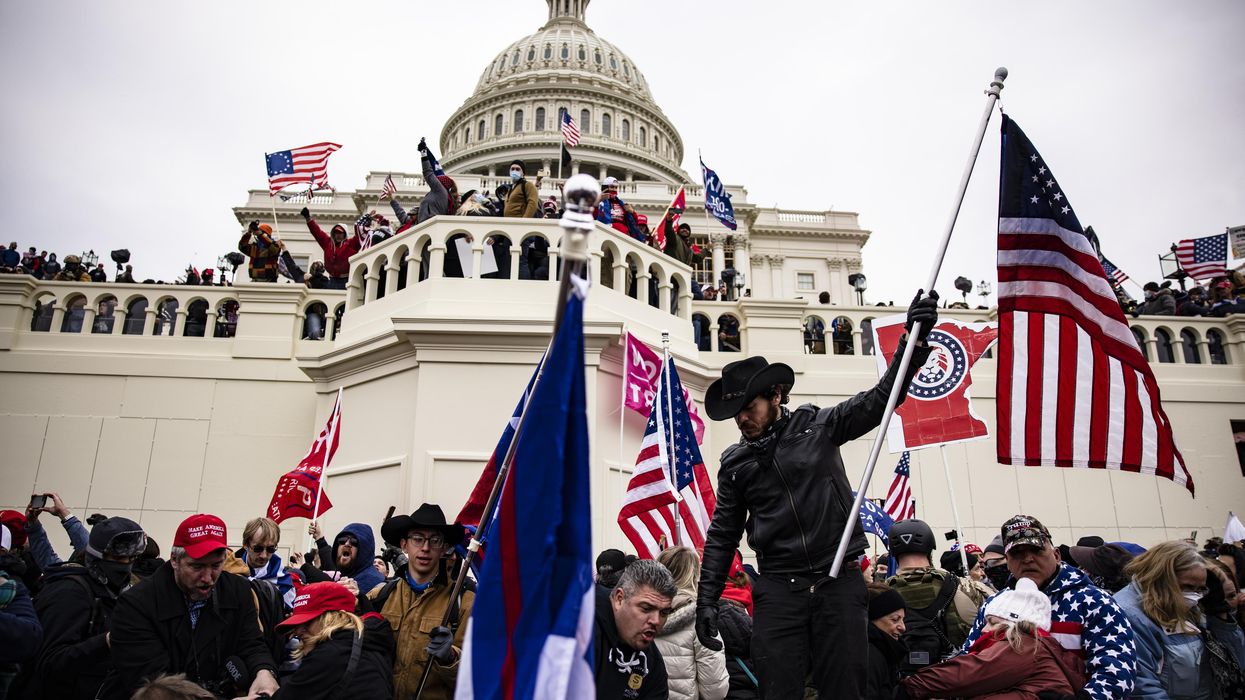The House of Representatives is scheduled to begin consideration of a new bill on Wednesday that is designed to update Congress’ role in finalizing presidential elections and head off another Jan. 6. While not an exact match, it’s very similar to a bipartisan bill that has been introduced in the Senate.
Together, they would be the first meaningful update to federal election laws since rioters entered the Capitol in an effort to block Congress from confirming Joe Biden’s 2020 victory over Donald Trump.
Unlike the Senate bill, which has meaningful Republican support, the House legislation may have trouble picking up GOP voters beyond one of its initial sponsors, Rep. Liz Cheney of Wyoming. While that may impact the optics of the bill, it likely wouldn’t keep it from passing.
House Majority Leader Steny Hoyer’s daily schedule of chamber activities shows the members will begin work on the Presidential Election Reform Act on Wednesday, with the possibility of voting on passage before the session ends. Democrats are expected to overwhelmingly support the bill.
However, Rep. Steve Scalise, the second-ranking Republican in the House, will encourage GOP members to vote against the bill.
"In their continued fixation to inject the Federal government into elections, this legislation runs counter to reforms necessary to strengthen the integrity of our elections," Scalise's office wrote to Republicans, according to ABC News.
But unlike prior bills that would have set national standards for voter registrations, methods of voting and redistricting, the Presidential Election Reform Act would not affect how states manage their elections. Rather, it focuses on four key aspects of election certification – steps that take place after voters have done their part.
As described in a Wall Street Journal op-ed written by Cheney and the bill’s co-sponsor, Democratic Rep. Zoe Lofgren, the bill:
- Makes clear that the vice president’s role in presiding over the congressional counting of electoral votes is ceremonial.
- Establishes the requirement for objecting to a state’s slate of electors as one-third of each chamber of Congress, up from one member of each.
- Requires states to submit the electoral vote counts, so state officials can not prevent Congress from counting all the votes.
- Bars states from changing the rules after elections are complete.
“Our proposal is intended to preserve the rule of law for all future presidential elections by ensuring that self-interested politicians cannot steal from the people the guarantee that our government derives its power from the consent of the governed,” wrote Cheney and Lofgren, who have served together on the select committee investigating the Jan. 6 insurrection.
The most significant difference between the House and the Senate bills is the threshold for objecting to a state’s electoral votes. While the Cheney-Lofgren bill sets the minimum objectors as one-third of each chamber, the Senate bill would only require one-fifth of lawmakers.
Assuming both bills pass their respective chambers intact, that and any other differences would need to be worked out.
And passage of both is likely. If all Democrats vote for the House bill, it will pass regardless of Republican opposition. And the Senate bill, formally known as the Electoral Count Reform and Presidential Transition Improvement Act, has 10 Republican co-sponsors (in addition to the lead sponsor, Republican Susan Collins, who has led the effort with Democrat Joe Manchin). That means it has enough support to break through a filibuster.
The Senate Rules and Administration hearing has scheduled a Sept. 27 hearing on that chamber’s bill.
These bills would amend the Electoral Count Act, an 1887 law governing the process by which Congress reviews the Electoral College votes and affirms the election of a president and vice president. Following his loss in 2020, Trump and some of his allies pressured Vice President Mike Pence, in his capacity as the presiding officer, to refuse to allow votes for Biden to be counted.
Following a rally in front of the White House, thousands of Trump supporters marched on the Capitol. Approximately 2,000 people illegally entered the Capitol by breaking through barriers and overpowering Capitol Police officers. At least five deaths have been associated with the insurrection, more than 140 law enforcement officers were injured and more than 700 people have been arrested.




















Why does the Trump family always get a pass?